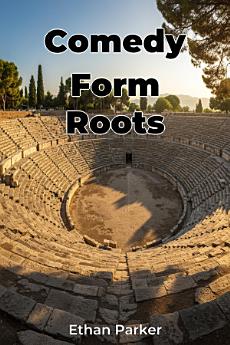Comedy Form Roots
About this ebook
The book progresses systematically, starting with fundamental comedic concepts. Subsequent chapters delve into specific historical periods and cultural traditions, analyzing the development of comedic forms in each. By drawing upon play scripts, performance records, and critical essays, the book adopts an interdisciplinary approach, connecting theatre history with sociology, political science, and anthropology. This sheds light on comedy's broader cultural significance.
What makes Comedy Form Roots unique is its comparative approach, analyzing comedic traditions from around the world. This perspective challenges Eurocentric views of comedy and offers a more inclusive understanding of its global history. This valuable resource is designed to engage scholars and students interested in theatre, humor, and cultural history, offering insights applicable to the analysis of contemporary comedy.








